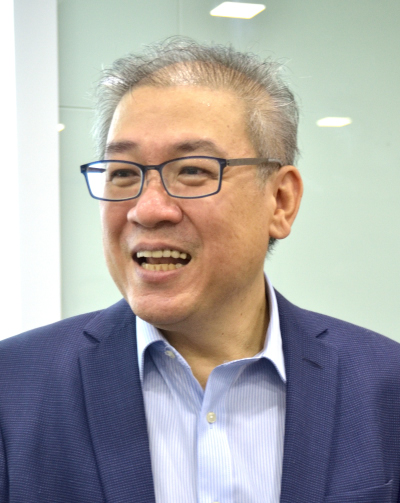SUNNINGDALE TECH's stock price fell by 15% to close at S$1.47 today (24 April) after it announced a year-on-year (yoy) decline of 74.8% in 1QFY2018 net profit attributable to shareholders to S$1.94 million. Other highlights for 1QFY2018:
For more info, refer to its financial statements here. |
|
Financial Highlights |
1Q2018 |
yoy change |
|
Revenue |
169.0 |
-1.6% |
|
Gross profit |
21.4 |
-17.2% |
|
Gross margin |
12.7% |
-2.3ppt |
|
Net margin |
1.1% |
-3.4ppt |
Below is an excerpt of questions raised at the Group’s 1QFY2018 briefing today (24 April) and the replies provided by CEO Khoo Boo Hor.
Q: Did negative sentiment over the trade war between China and the US affect your revenue?
No, not at all. 1Q2018 revenue fell because of the following reasons:
- We had an exceptionally strong 1Q2017, so there was a high base for comparison.
- Some projects reached end-of-life during 1Q2018.
- There were delays in the ramp-up of some projects.
- Some customers faced sluggish demand
- Some customers wanted to control their inventory.
- The weaker USD/SGD exchange rate compared to a year ago affected our revenue.
- Utilization was affected by the Chinese New Year holidays.
Q: Did the higher oil prices affect your gross margin?
|
1Q2018 |
|
|
Net operating cashflow: |
Cash & Cash equivalents: |
We faced some pressure from resin suppliers, especially for general consumer-grade plastic components.
We try to contain the cost increase. If we cannot do that, we will try to pass the cost increase to customers.
Engineering-grade plastics (which we use for our automotive segment) are less price-sensitive.
Q: What was the start-up loss from your Penang plant?
The start-up loss was not significant. We have hired all the first level managers, operators, engineers, and technicians. We have moved some machines there and have been doing pilot runs for our customer to qualify the facility. Its expansion schedule is on track. We hope to start ramping up the facility in late 2Q or early 3Q.
We have already obtained our certificate of construction conformance. We plan to go for ISO certification at the end of this year. ISO certification can only take place after we gather data from pilot and production runs.
| Stock price | S$1.47 |
| 52-week range | $1.45 - $2.40 |
| Market cap | S$277 m |
| PE | 10.7 x |
| Dividend yield | 3.08% |
| Price/Book | 0.76 x |
| Source: Bloomberg | |
Q: What is the extent of your automation?
We have many different product lines. Some lines are fully automated. Some lines still use manual labor because of the relatively small volumes.
Whether or not we automate depends on the project value and product lifecycle. There is also fixed versus flexible automation.
Automation investment is huge, involving millions of dollars. It only makes sense to automate when it is for a project valued at US$1 million to US$5 million and with a lifecycle of 5 to 7 years.
In Singapore, we are investing heavily in collaborative robots. Unlike industrial robots, collaborative robots are smaller in size and are able to work hand in hand with humans.
In Shanghai, we recently signed off a project that we are going to automate because volume has increased and the customer is supporting us by subsidizing the automation.
Q: What are your capacity expansion plans?
Our 3 plants in Johor are heavily utilized and we needed a 4th plant. We decided to go to Penang because some of our customers that we served out of Johor are located in Penang.
Our plants in Shanghai and Suzhou are also very full. In the coastal area, the cost of operation has risen greatly. Environmental controls have also been getting tougher -- spray-painting is restricted in major cities. That is the reason we chose Chuzhou.
Chuzhou is our site for expansion in China. Penang is our site for expansion in South Asia.






